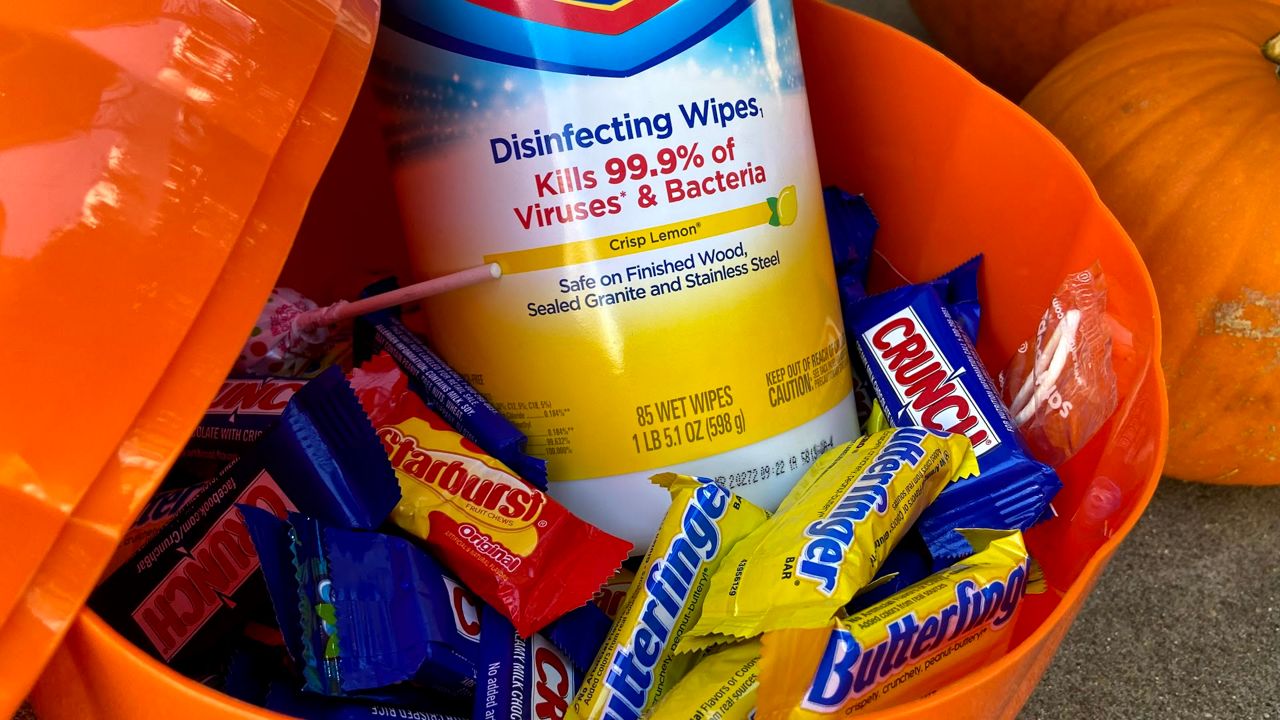LOUISVILLE, Ky. — Parents across the county will get home after trick-or-treating Saturday night and before allowing the kids to dig in the candy they'll break out the sanitizing wipes. Out of an abundance of caution, they’ll disinfect Butterfingers and Tottsie Rolls. In some states, including Kentucky, they'll be following the advice of their governor. They'll also be wasting their time, according to several virologists who spoke to Spectrum News 1.
“It's really not necessary and it’s potentially harmful,” said Craig Hedberg, an infectious disease expert at the University of Minnesota.
Research shows the coronavirus that causes COVID-19 is spread, almost exclusively, via respiratory transmission. Catching the virus from a surface, especailly candy wrappers, is “very unlikely,” experts said. Meanwhile, the CDC says “spread from touching surfaces is not thought to be a common way that COVID-19 spreads.”
“It’s sharing air with infected people and inhaling the virus that is in the air around you that is really driving the spread of this virus,” Hedberg said.
Concern over surfaces contaminated with viral droplets has been around since the beginning of the pandemic, when disinfectant wipes flew off store shelves and people scrubbed their groceries before bringing them inside. Since then, a consensus has emerged, Hedberg said, that “the risk of transmission from contaminated surfaces is really negligible.”
Negligible, of course, is not zero. COVID-19 could be transmitted from a candy wrapper, but it would take a series of extraordinary events, said Kentucky State University virologist Alexander CK Lai.
“Theoretically, if someone is shedding high concentration of COVID-19 virus (SARS-CoV-2), and these viruses land onto the surface of candy wrappers, and if kids touch it, picking up the virus, and scratch their eyes and noses, etc., the kids may be infected,” he wrote in an email. “However, there is no evidence, or lack of evidence so far, to document that scenario has happened.”
Still, the governors of both Kentucky and Ohio, along with encouraging masks and social distancing, have advised adults to wipe down the candy children receive on Halloween. If they use chemical wipes, this presents a different risk, said University of Kentucky virologist Rebecca Dutch. “I would be concerned about what cleaners people use in the wipe down, as those can also be an issue if ingested,” she said.
The primary risk of painstakingly wiping down candy though is not the possibility of your child swallowing disinfectant though, it’s allowing the focus on scrubbing wrappers to detract from the proven ways to prevent COVID-19 infection. At a moment when the virus is surging, due in part to pandemic fatigue, it’s more important than ever to communicate what works and what doesn’t.
And when it comes to what works, Lai said, the evidence is clear: “The best prevention is by wearing a face mask properly.”



